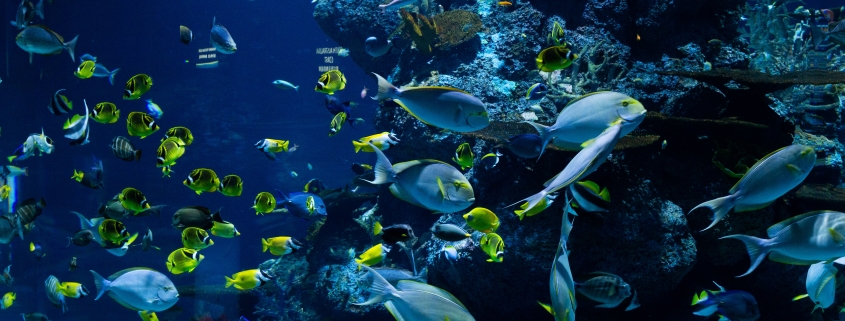Coral reefs vital for ocean life
A quarter of all marine species depends on coral reefs but these vital parts of the oceans’ ecosystem are at risk from acidification, pollution, over-fishing and rising water temperatures.
The University of Western Australia’s PhD candidate Josh Bonesso spoke to high school students recently about the significance of coral reefs, as part of the Western Australian Marine Science Institution’s Thinking Blue outreach program. Josh was a finalist in the Student Scientist of the Year category in this year’s Premier’s Science Awards for his innovative research on coral reef islands. He’s also a keen science communicator.
“Coral reefs are nursery grounds for fish, they’re important too for megafauna and the building of coral reef islands that provide nesting areas for many species of seabirds and turtles,” Josh said.
“So, while coral reefs aren’t a large component of the ocean, about 25 percent of marine species rely on them directly and indirectly.”
Josh explained to the Year 12 students how coral reefs formed over thousands of years but that higher-than-normal temperatures and storm events caused by climate change threatened the survival of many coral varieties, particularly fragile branching corals. Mound corals were generally more resilient, but Josh said it was important for reefs not to become homogenous.
“At 34 degrees a species of branching coral, Acropora aspera, exerts a stress response and experiences bleaching.
“We know less about how these corals cope with stress at temperatures below bleaching, at around 32 degrees, and how this impacts their recovery from injury following storm events.”
“But experiments have been done in tanks at that lower temperature where the tops of coral branches are snipped off, to replicate storm damage, and they haven’t grown back,” Josh said.
Thinking Blue is WAMSI’s education outreach program which is designed to educate students about marine science and inspire them to do further studies in the field.
Josh is a PhD candidate at UWA’s Oceans Institute. He did his undergraduate science degree at La Trobe University and initially studied alpine and conservation ecology. But he told the students after a field trip to the Heron Island Research Station on the Great Barrier Reef, he ‘fell in love with coral reefs’.
You can watch Josh’s lecture here.

